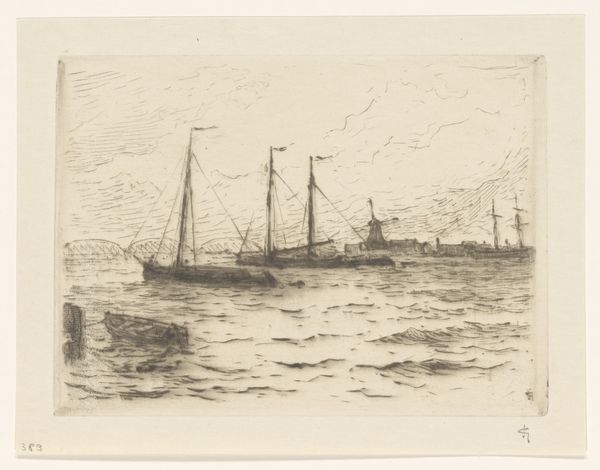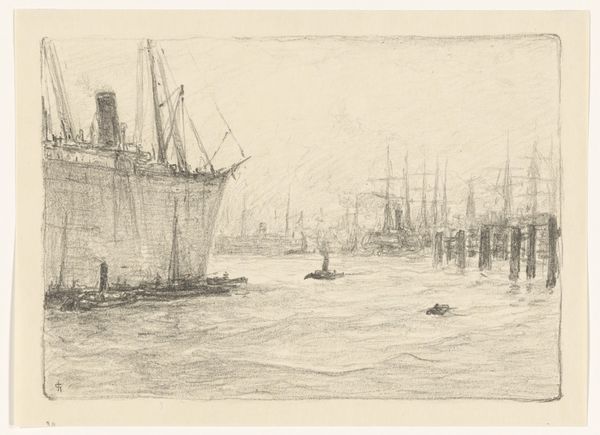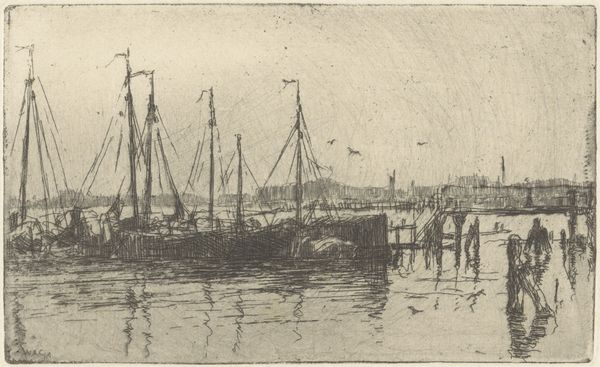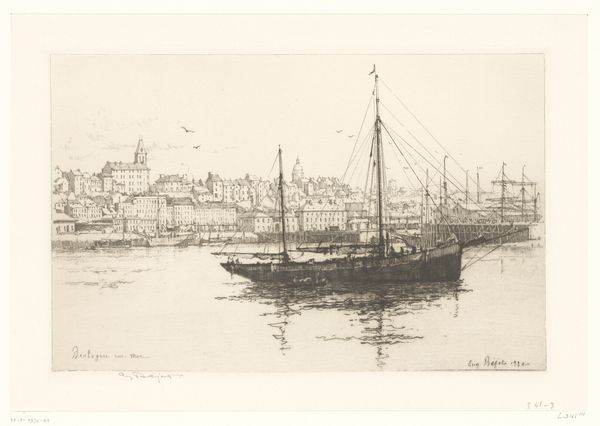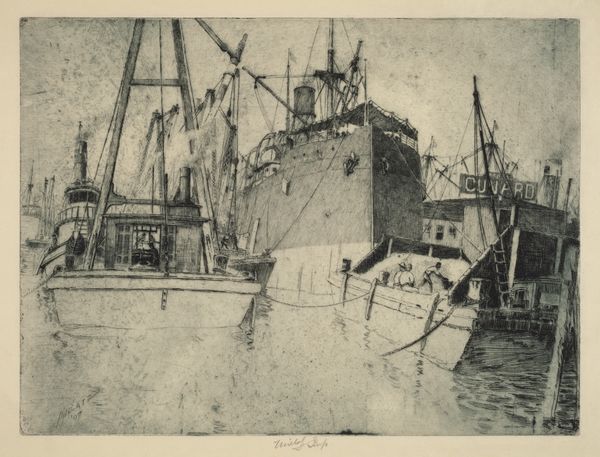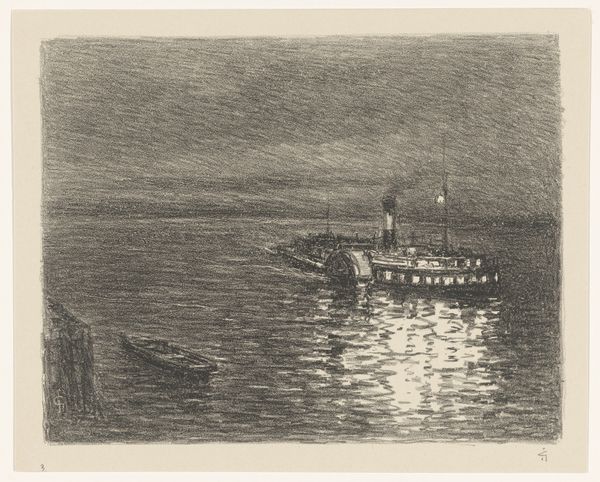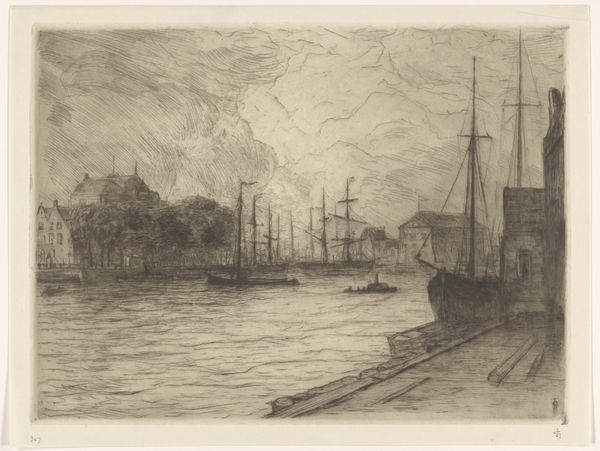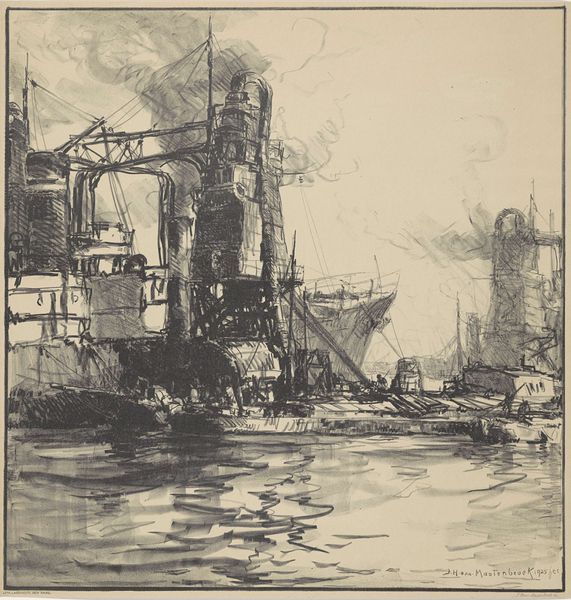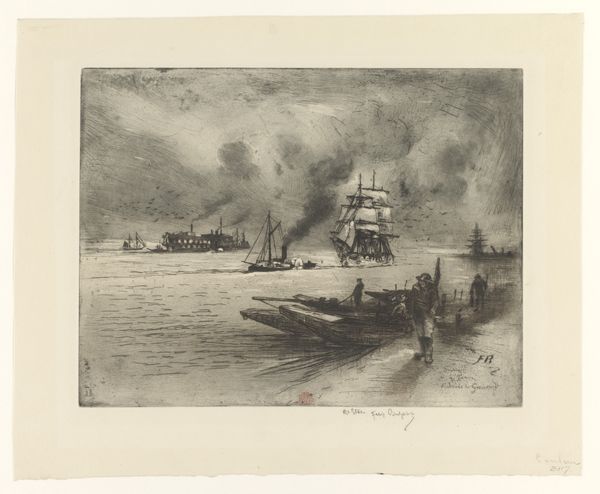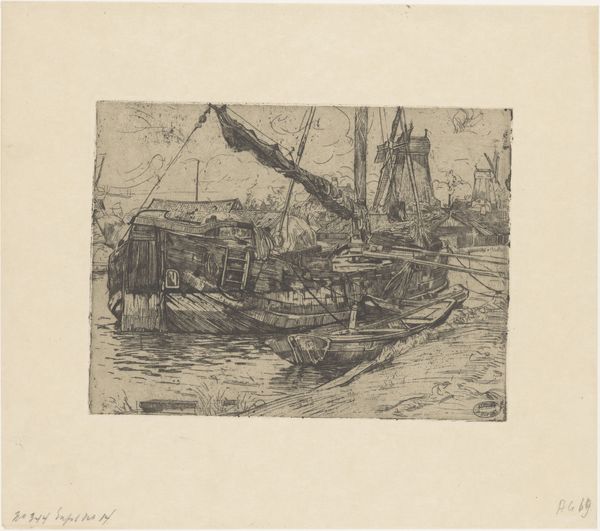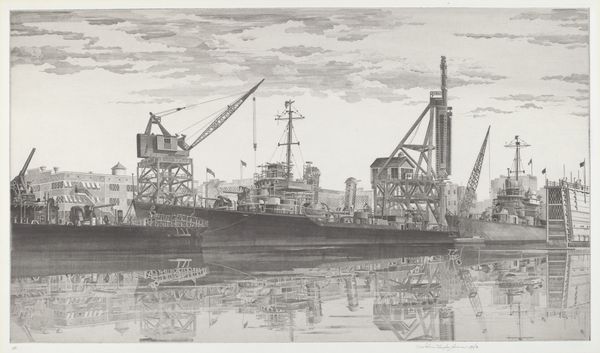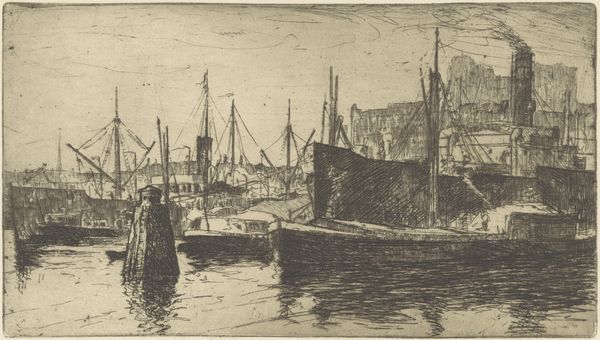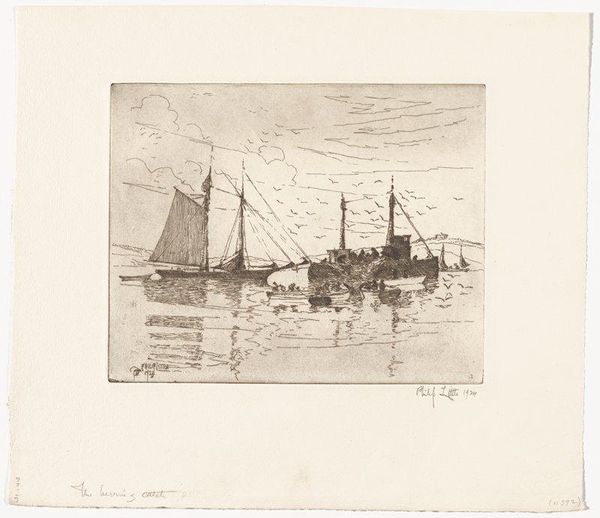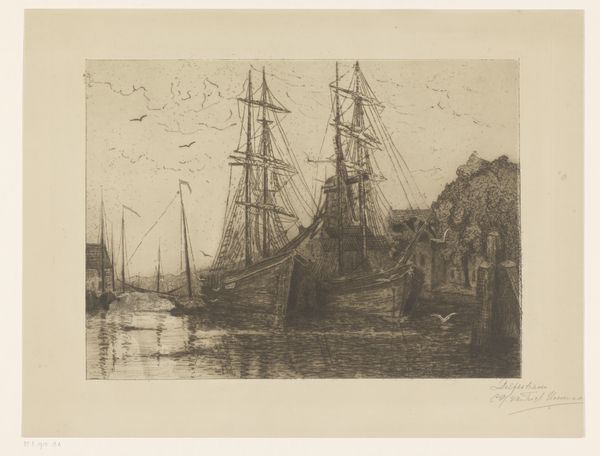
print, etching
# print
#
etching
#
landscape
#
etching
#
cityscape
#
watercolor
#
realism
Dimensions: height 168 mm, width 210 mm
Copyright: Rijks Museum: Open Domain
Editor: Here we have Willem Adrianus Grondhout's "Afgemeerde schepen in de haven van Rotterdam," an etching made sometime between 1888 and 1934. The grimy aesthetic almost romanticizes this harbor scene, with these massive ships rendered with such a delicate technique. What stands out to you? Curator: Well, immediately, I consider the material reality of the port, depicted here not just as a picturesque locale but as a site of labor. Look closely at the etched lines – the repetitive, almost industrial process mirroring the ceaseless activity of the harbor itself. What materials would have been transported to this place? Where would those materials go next? Editor: I hadn’t thought about the process echoing the subject matter! It's interesting how the artist's repetitive actions with the etching needle on the plate mirror the ongoing bustle of dockworkers. Does this imply a social commentary? Curator: Possibly. Consider the intended audience. Etchings were more accessible than paintings, often purchased by the burgeoning middle class. Was Grondhout highlighting the industriousness that fueled their lifestyle, or subtly critiquing the social inequalities inherent in maritime trade? Do the details about labor offer any clues? Editor: That's a really great point; seeing this displayed as a print alters how I think about its potential message and accessibility. This has helped me see the print not just as a picture, but as an artifact embedded in social and economic systems. Curator: Exactly. By looking at the production of the artwork and the world it depicts, we reveal its deeper cultural meanings. We have so much to learn from even just considering the method the artist used to render these docked ships!
Comments
No comments
Be the first to comment and join the conversation on the ultimate creative platform.
